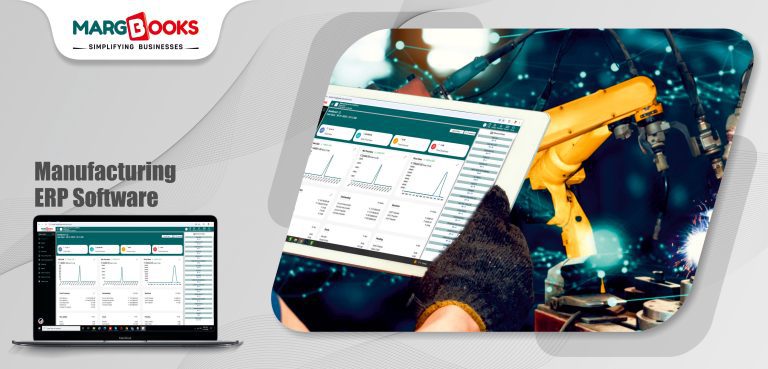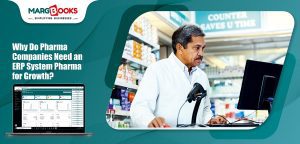In today’s fast-paced business environment, manufacturers are facing more pressure than ever to remain competitive, meet customer demands, and operate efficiently. One of the most effective solutions to these challenges is the integration of Manufacturing ERP (Enterprise Resource Planning) software into daily operations. Manufacturing ERP software is designed to optimize and streamline various aspects of manufacturing, from production planning and inventory management to supply chain logistics and customer relationship management. In this blog post, we will explore the importance of Manufacturing ERP software and how it can benefit manufacturers looking to improve productivity, reduce costs, and stay ahead of the competition.
What is Manufacturing ERP Software?
Manufacturing ERP software is a suite of integrated applications designed to help manufacturers manage and automate key business processes. These processes include production scheduling, inventory management, procurement, financial management, human resources, customer relationship management (CRM), and more. By providing real-time insights into all aspects of the manufacturing business, ERP software helps streamline operations, reduce inefficiencies, and ensure that resources are used effectively.
ERP systems consolidate data across various departments into one unified platform, making it easier for managers to access up-to-date information. This improves decision-making, enhances collaboration between departments, and ensures that everyone in the organization is working from the same information.
Benefits of Manufacturing ERP Software
- Improved Operational Efficiency
One of the primary benefits of Manufacturing ERP software is its ability to streamline operations. By automating repetitive tasks, reducing manual data entry, and integrating various functions into a single platform, ERP systems can significantly improve operational efficiency. For example, manufacturers can use ERP software to automate production scheduling, manage work orders, and track inventory levels in real time. This reduces the likelihood of errors, improves the accuracy of forecasts, and helps optimize production processes, ultimately saving time and resources.
- Real-time Data and Reporting
Manufacturers need real-time data to make informed decisions, and ERP software provides exactly that. With an ERP system in place, manufacturers can track production processes, inventory levels, and supply chain activities in real-time. This allows managers to identify potential issues early, whether it’s a supply chain disruption, a machine breakdown, or an inventory shortage, and take corrective action before problems escalate. The software also generates detailed reports, helping decision-makers analyze performance metrics and identify areas for improvement.
- Enhanced Inventory Management
Inventory management is a critical aspect of manufacturing, as carrying excess inventory ties up valuable capital, while insufficient inventory can lead to stockouts and production delays. Manufacturing ERP software helps optimize inventory management by providing real-time visibility into stock levels, order status, and production schedules. This enables manufacturers to maintain the right balance of inventory, reduce waste, and minimize the risk of stockouts.
ERP systems also facilitate just-in-time (JIT) inventory management, where materials are ordered and delivered exactly when they are needed for production. This reduces the need for large storage spaces, cuts down on holding costs, and ensures that raw materials are available when required without overstocking.
- Better Supply Chain Management
An efficient and responsive supply chain is crucial for manufacturers to stay competitive. Manufacturing ERP software helps improve supply chain visibility by tracking orders, shipments, and deliveries in real-time. Manufacturers can better coordinate with suppliers, monitor lead times, and ensure timely delivery of materials. ERP software can also help manufacturers identify reliable suppliers, negotiate better contracts, and optimize the procurement process.
Moreover, with enhanced visibility into supplier performance, manufacturers can make data-driven decisions that reduce costs and improve overall supply chain efficiency.
- Scalability and Flexibility
As businesses grow, so do their operational needs. Manufacturing ERP software is designed to scale with the business, ensuring that it continues to meet the demands of increased production volume, more complex supply chains, and larger teams. ERP software can also be customized to meet the unique needs of different manufacturing sectors, such as automotive, food and beverage, electronics, and textiles.
The flexibility of ERP systems allows manufacturers to adapt quickly to changes in the market, customer preferences, or production processes. Whether it’s adding new features, integrating with other software systems, or expanding the functionality of existing modules, ERP software provides the scalability and flexibility needed to support long-term business growth.
- Regulatory Compliance and Quality Control
Manufacturers must adhere to strict industry regulations and quality standards. ERP software helps ensure compliance by maintaining accurate records, generating audit trails, and providing documentation for regulatory requirements. Additionally, ERP systems can support quality control processes by tracking product defects, conducting inspections, and ensuring that products meet the required standards.
By automating these processes, ERP software reduces the risk of human error and ensures that manufacturers maintain high-quality products while meeting regulatory requirements.
Choosing the Right Manufacturing ERP Software
Choosing the right Manufacturing ERP software is critical for achieving the desired benefits. When evaluating different ERP solutions, manufacturers should consider factors such as:
- Industry-specific functionality: Does the ERP software cater to the specific needs of the manufacturing sector?
- Ease of use: Is the software user-friendly and easy for employees to adopt?
- Integration capabilities: Can the ERP system integrate with other software tools and existing infrastructure?
- Customization options: Can the system be customized to meet the unique needs of the business?
- Cost: What is the total cost of ownership, including implementation, training, and ongoing support?
Conclusion
Manufacturing ERP software is a powerful tool that can transform operations, reduce costs, and improve efficiency. By integrating key processes such as inventory management, production scheduling, supply chain coordination, and customer relationship management into one unified platform.
MargBooks ERP software enables manufacturers to make data-driven decisions, optimize resources, and remain competitive in a fast-evolving industry.
By investing in the right ERP system, manufacturers can position themselves for long-term success, driving growth and profitability.




